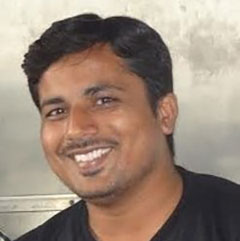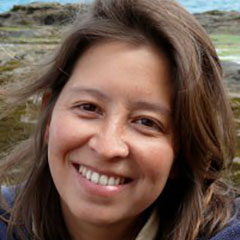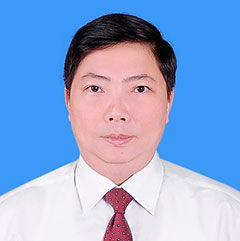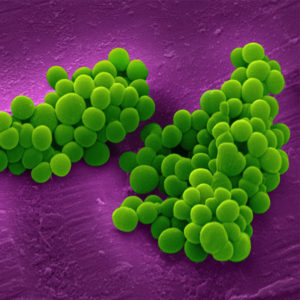Antimicrobial Resistance in Bacterial Pathogens (Hanoi, Vietnam)
29 September–4 October 2019
Oxford University Clinical Research Unit, Hanoi, Vietnam
Learn antimicrobial susceptibility testing techniques and how whole-genome sequencing and bioinformatics can be used to understand AMR
Summary
In collaboration with the National Hospital of Tropical Diseases (NHTD) and the Oxford University Clinical Research Unit (OUCRU), Hanoi, Vietnam, we are pleased to announce the 2019 overseas course in Antimicrobial Resistance of Bacterial Pathogens.
Antimicrobial resistance (AMR) is a global public health emergency, and threatens the safe delivery of modern medical care. Global projections of the negative impact of AMR predict the loss of nearly 10 million lives, and a cumulative loss of global production up to 100 trillion US dollars by 2050. AMR requires immediate, concerted, international, collaborative action to monitor its prevalence and spread throughout the world. The importance of this has been recognised both by the United Nations, and by the World Health Organisation; the latter has published a list of priority pathogens and a global strategy for AMR surveillance.
The challenges of controlling AMR in low- and middle-income countries may be considerable for a number of reasons. Firstly, antibiotics may be available for human and animal use without prescription, resulting in unregulated use. Secondly, accurate data on antimicrobial prescription or consumption may not be readily available. Thirdly, there may be limited knowledge about appropriate use of antibiotics and a lack of antimicrobial policies or stewardship programmes. Finally, there may be limitations in healthcare facilities and laboratory capacity for the detection and management of AMR.
The aim of this course is to address some of these challenges by improving the knowledge and skills of individuals interested in antimicrobial resistance in bacterial pathogens in Asia. It will provide a basic introduction to AMR, and practical laboratory training in the laboratory aspects of AMR detection (phenotypic and molecular testing) in bacteria. It will also provide theoretical training on the evolution and spread of AMR and explore the use of using whole-genome sequencing and bioinformatics analysis and methods for AMR surveillance and control. The content will be globally relevant but tailored to an Asian setting, and therefore potentially transferable to other LMICs. It will result in training and capacity building of the participants who will be able to transfer their knowledge and skills within their home own institutions and countries. The course will provide an opportunity for participants to network and potentially build a regional AMR network to support longer-term partnerships and collaborations.
Target audience
This week-long course is free to attend and open to applicants based in Asia who are actively engaged in, or soon to commence, research, clinical practice, provision of clinical services or policy development related to AMR in bacteria. Applicants should be PhD students, clinical trainees or specialists in medical microbiology, postdoctoral scientists, senior technicians, or research assistants with a Master’s degree.
Programme
The course will be made up of lectures and laboratory and computational practicals. Participants will learn international standard methods for the detection of antimicrobial resistance in bacteria. Participants will also complete computational practicals covering the investigation, tracking and understanding AMR in bacteria.
Specifically the course will cover:
- Historical and epidemiological aspects of antimicrobial resistance (AMR)
- Clinical importance of AMR
- Causes and biological mechanisms of resistance in Gram-positive and Gram-negative bacteria
- Antimicrobial susceptibility testing (AST) methods e.g. disc testing, automated systems, minimum inhibitory concentration (MIC), breakpoints and reporting
- Molecular methods for detection of AMR
- Internal quality control (QC) and external quality assurance (QA) for AST
- AMR pathogens in Asia
- AMR in veterinary medicine
- Antibiotic policies and stewardship
- AMR surveillance methods and study design
- Tackling AMR using a One Health Approach
- Introduction to genomic surveillance of AMR
- Local AMR epidemiology – investigating transmission of clones and AMR
- Analysis of resistance in genomes
Learning outcomes
After attending this course, participants will be able to
- Recognise the significance and challenges of AMR spread and evolution in low and middle-income countries.
- Carry out standard laboratory methods for antimicrobial susceptibility testing (e.g. disk testing and MIC determination)
- Apply molecular approaches and techniques for the detection and characterization of antimicrobial resistance genes.
- Describe the principles and practice of quality assurance and control in AMR surveillance techniques, antimicrobial susceptibility testing and reporting.
- Discuss the range of different control strategies for AMR in human and veterinary medicine (e.g. antimicrobial stewardship, infection control and policies).
- Use web based and user friendly computational tools for the monitoring and analysis of antimicrobial resistance.
Instructors and speakers
Course instructors

Beth Blane
University of Cambridge, UK

Francesc Coll
LSHTM, UK

Ewan Harrison
Wellcome Sanger Institute, UK

Narender Kumar
University of Cambridge, UK

Estee Torok
University of Cambridge, UK

Rogier van Doorn
OUCRU Hanoi, Vietnam

Nguyen Vu Trung
National Hospital for Tropical Diseases, Hanoi, Vietnam
Nguyen Thi Hoa
National Hospital for Tropical Diseases, Hanoi, Vietnam
Le Thi Hoi
National Hospital for Tropical Diseases, Hanoi, Vietnam
How to apply
Prerequisites
Applicants should be PhD students, clinical trainees or specialists in medical microbiology, postdoctoral scientists, senior technicians, or research assistants with a Master’s degree. Applicants should be based in Asia and be actively engaged in, or soon to commence, research, clinical practice, provision of clinical services or policy development related to AMR in bacteria. Applicants should have basic training in standard microbiology lab techniques such as pipetting, handling of biological samples, aseptic technique and streaking.
Laboratory experience: The laboratory practical sessions will require basic microbiological and laboratory skills. Participants are required to have some previous exposure basic microbiological and laboratory techniques. This will be essential for participants to fully benefit from the course.
Computer usage: Participants should have some basic knowledge of computer usage (e.g. use an Internet browser). No formal bioinformatics training is required.
The course will be taught in English.
How to Apply
Please complete the online application form. Places are limited and will be awarded on merit. If you have any problems with the online application process, please contact us.
Please note: Applications must be supported by a recommendation from a scientific or clinical sponsor (e.g. supervisor, line manager or head of department). A request for a supporting statement will be sent to your nominated sponsor automatically during the application process. Applicants must ensure that their sponsor provides this supporting statement by the application deadline. Applications without a supporting statement cannot be considered.
Cost
Cost
The course is subsidised by Wellcome Genome Campus Advanced Courses and Scientific Conferences and is free to attend for non-commercial applicants. Please contact us for the commercial fee.
Bursaries
A limited number of bursaries are available for each course. These are awarded on merit to cover travel, accommodation and sustenance. The maximum award for travel (economy class) will be £750. If you would like to apply for a bursary, please complete the bursary section of the online application form.
Bursaries can be applied for as part of the course application form. Applicants will be notified of a bursary award along with their place on the course, usually within one month of the application deadline. The decision of the selection committee is final.
Please note that both the applicant and sponsor are required to provide a justification for the bursary as part of the application. Priority will be given to applicants from low- and middle-income countries.
Accommodation services phishing scam – please be vigilant. More information.
Testimonials
Feedback from the 2018 course:
“This was the best training so far in my experience”
“The packaging of the information as well as the delivery methods were clear to comprehend”
“A good preamble to the emergence and spread of AMR followed by many practical and evidence based presentations, made it easy to understand the extent of what the world is faced with in AMR”.
“Training was well organized and structured”
“All the topics helped me to understand better, the importance of controlling the development of AMR”
“We were treated to a high level of teaching and interaction with instructors. All facilitators were friendly and patient with participants and gave support to pull slow learners to the pack”
“The best part for me is the computational practice with the study of genomic surveillance of AMR and the analysis of resistance genes”
“I really appreciated the course and I learned a lot of useful things relevant to my PhD studies and teaching career”
“Thank you for considering me for the course, I will recommend it to my colleagues to receive a world class training in such a short time”

